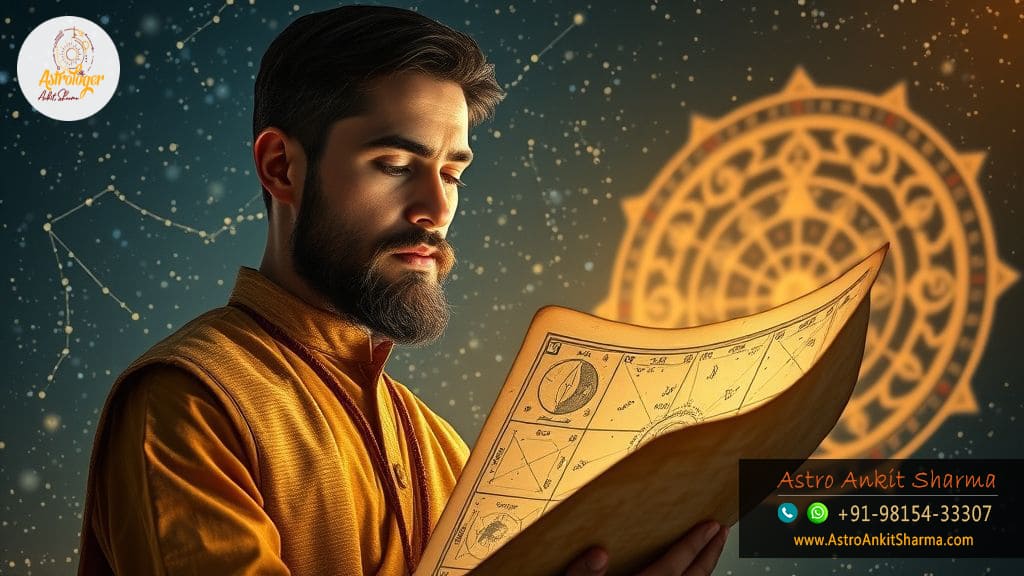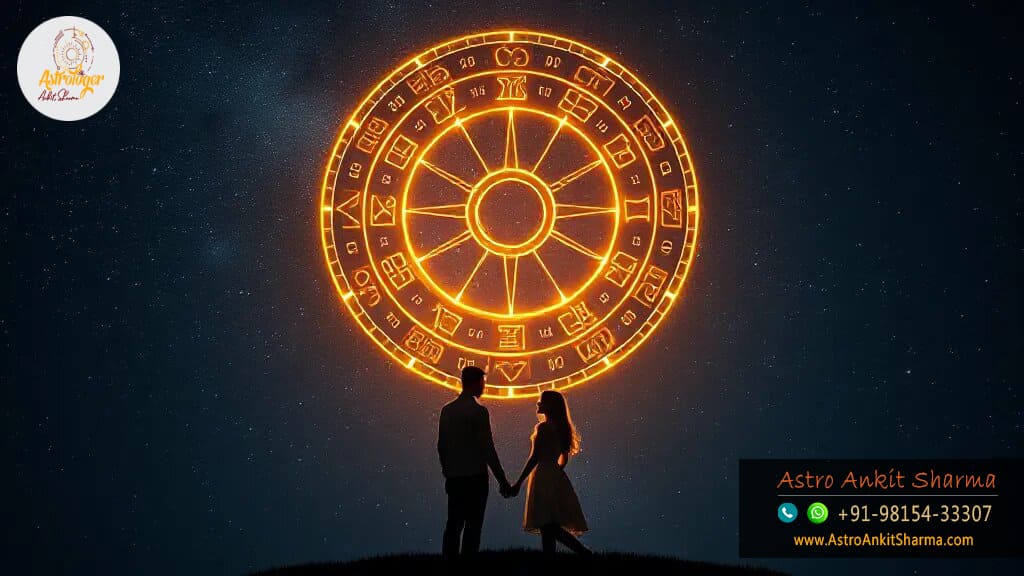What is Vedic Astrology?

by Ankit Sharma
Published : April 20, 2025

Also known as the Hindu Astrology or Indian Astrology, the Vedic Astrology is now globally prominent for providing highly beneficial or marvelous results in all various spheres of human life. The evolution of vedic astrology dates back to 3000 BCE. Subsequently it got creatively well-developed and refined during the Vedic times in ancient India. Hence, it became famous as the Vedic astrology, since then. Broadly, the most renowned names inherently associated with this well-developed and affluent Hindu astrology, who contributed substantially and remarkably to development of this great treatise on the influences of various celestial bodies and forces, were the following --- sage Bhrigu (who wrote Bhrigu Samhita, and is regarded as the "father of Hindu astrology"), sages Lagadha and Sage Shuci (who contributed to Vedanga-Jyotisha), Maharishi Parashara (who authored the Brihat Parashara Hora Shastra), great astronomer-cum-astrologer Varahamihira, sage Jaimini (who composed Jaimini Sutras), and sage Garga (who wrote Garga Samhita).
Vedic astrology, called as Vedic Jyotish (meaning, "the science of light") in Hindi, used to be the sole system of knowledge in ancient India, related with the influences and impacts of various astronomical or celestial bodies & forces on every person on earth. Through help of the rich stock of such knowledge, the vedic astrologers and sages used to solve the problems of the suffering or frustrated people, and enlightened them for adopting better lifestyles and also for attaining internal rectification and spiritual growth. Today also, Vedic astrology is a great and marvelous means for solving almost all different life's problems, and consequently it is hugely popular in continents across the globe.
In vedic jyotish the main and most significant constituent elements, which form the basis of all diverse astrological calculations, solutions, and predictions, are the following --- Nine Planets (collectively known as Navagraha); 12 Zodiac Signs (Rashis); 12 Houses or Bhavas; a total of 27 commonly used Constellations (Nakshatras); and a total of 16 Divisional Charts. The Birth Chart (or Birth Horoscope) serves as the prime or principal Chart, and depicts the arrangements of these all constituent bodies or elements at the exact time of birth of the native in the concerned geographical location in the world.
How does Vedic astrology differ from Western astrology?
The Western Astrology, which has evolved in the ancient Mesopotamia and later in Greek civilization during the Hellenistic period, differs from the Vedic Astrology in many aspects. Broadly, these differences are related with Zodiac systems, ways of calculations and interpretations, philosophies and objectives, and the types of remedial measures used. The following are the notable distinguishing features related with the vedic astrology vs western astrology, in general ---
- Vedic astrology utilizes the Sidereal Zodiac (in which constellations or stars are conceived as fixed backgrounds against which the movement of planets is measured) for calculations and predictions; whereas, the Western astrology makes usage of the Tropical Zodiac (in this system, the movement of planets is measured against the position of the Sun on the spring equinox), for these purposes.
- Vedic astrology deeply believes in karma (deeds), reincarnation, dharma (religious ethics), inner rectifications, and spiritual growth. While, the Western astrology puts strong emphasis on personality traits, free will, and self-awareness.
- Western astrology considers the position of the ruling planet only, for making predictions; whereas the Vedic astrology takes into account the positions of all planets at the time of birth of the native, for drafting predictions. For making predictions, Vedic astrology holds techniques like planetary positions, zodiac signs, yogas and doshas (benefic and malefic planetary combinations), nakshatras (lunar mansions), and a well-developed system of dashas (planetary periods) and gocharas (transits). On the other hand, the Western astrology makes usage of the angles between planets, the house system, and the planetary rulerships, for interpreting birth charts and forming predictions. Again, Vedic astrology gives greater importance to Moon, than the Western astrology.
- Vedic astrology has tools like Vimsottari Dasha system and Gocharas (transits) of planets, to provide the precise timelines for different occurrences and events in the life of the native. On the other hand, Western astrology utilizes the solar returns and progressed charts as well as psychological analyses for predicting future events.
- In Vedic astrology, the good and bad effects of the shadowy planets of Rahu (the north node of the Moon) and Ketu (the south node of the Moon) are critically significant. On the other hand, the Western astrology makes use of planets like Uranus, Neptune, and Pluto.
- The Western astrology generally uses Circular diagrams or charts; while the Vedic astrology makes usage of Square-shaped charts.
- As remedies, the Vedic astrology commonly suggest a variety of remedial measures in forms of gemstones, specific mantras or worships, donation of particular things, etc. But, the Western astrology puts strong emphasis on personal and psychological improvements, self-awareness, and mending one's natural traits and tendencies.
Who is the Best Vedic Astrologer in India?
Having brightened, uplifted, and changed the lives of millions in last three decades in continents worldwide, our Indian Guru Ji astrologer Ankit Sharma is currently estimated and venerated as being a most famous and popular, trustworthy, and a best Vedic astrologer in india and the entire world. Well-settled in Chandigarh, and visiting regularly to nations worldwide, this erudite and innovative Vedic astrologer serves all areas of life adroitly, providing fast-acting and marvelous results. He also administers a globally famous and popular Online Astrology Store, to deliver numerous precious and scarce astrology products at liberally reasonable and mid-range costs. Lastly, based on the birth chart, he suggests just few truly effective solution-measures; and his vedic astrology services are receivable both through the online and meeting in-person modes.


